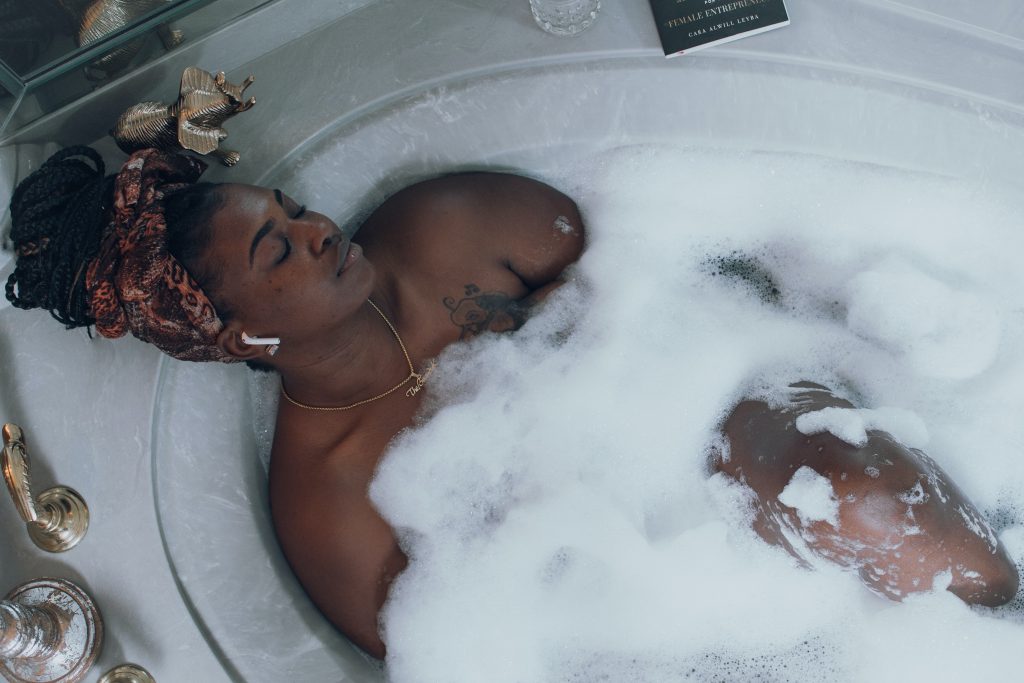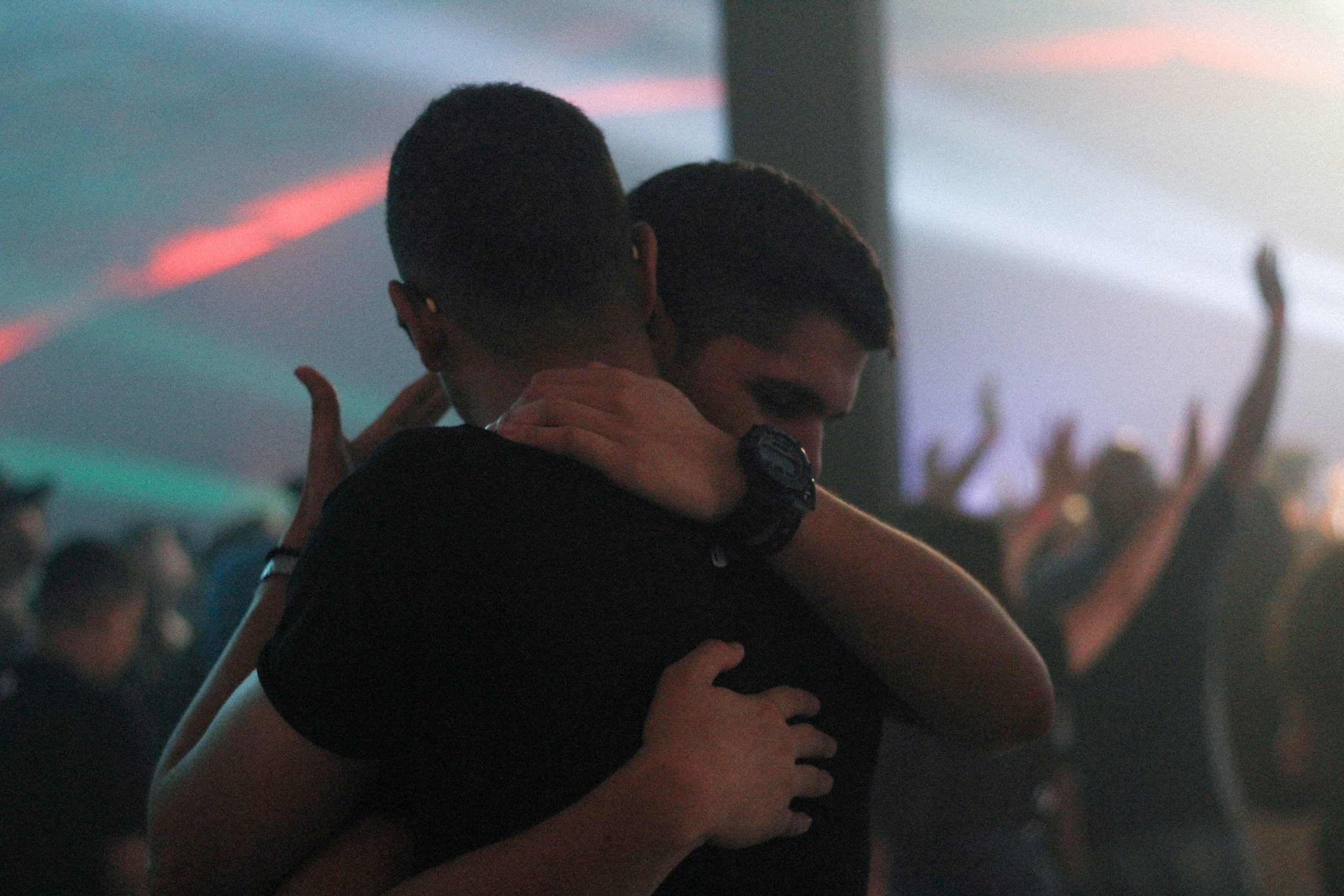In my practice, I work with many men and nonbinary folk with longings for partnership and sexual fulfillment. Being both a therapist and a human being, I have both subjective opinions and informed perspectives on the joys and struggles of this journey, and I wanted to share common observations and advice that come up in these discussions.
In the ongoing pendulum swing of the culture wars, the energy seems to be turning against gender and sexual minorities and the culture of sexual openness and consent we’ve cultivated for decades—and here I include those straight, kinky, and polyamorous people who are part of that culture.
Some of the rising critiques have merit and are worthy of consideration, as every movement includes people and positions that overreach and cause harm. Yet it would grieve us to lose what wisdom, beauty, and joy we’ve made in this culture, so that is another motivation to document what I’ve learned both living and being a therapist in these communities.
I address this to queer men and enbies because that is the culture in which I am most immersed, but I believe at heart there are similarities in the experience of seeking connection that cross identity categories. So if you find something in here that resonates with you, claim it! If it doesn’t, brush it aside!
Below are mini-essays that offer strategies for enjoying love and sex with responsibility, maturity, and respect for yourself and your partners. The following links will take you directly to each section:
Seeking Lust, Seeking Love
In my early twenties, when I was freshly out, I was one of the guys who “hated the gay scene” and imagined I was the rare soul who wanted true romance and connection amidst a group of shallow and hedonistic, vapid people. Unfortunately, this attitude made me haughty and judgmental of a lot of decent, authentic people who had a different relationship with their sexuality and gender than was comfortable for me.
Essentially, I was deeply insecure, terrified of being excluded from a community I’d just joined, uncertain of my place in it, and hiding behind self-righteous superiority rather than risking authenticity. Not every queer man goes through this phase of coming out and joining the community, but it’s quite recognizable when it happens.
So many queer men say they truly want a connected, monogamous relationship, and are utterly uninterested in open relationships or the promiscuous gay culture—yet so many of these same folks have sex with guys they barely know, and sometimes guys in open relationships. What I’m saying is, their behavior does not seem to align with their stated values.
Being in an open relationship is not mandatory—more on that later—but what I’m pointing toward is that sex and romance are not simple desires that yield to moralistic declarations and rigid rules. When we feel loneliness and shame, being sexually desired may feel like a balm, an ego boost, even if acting on it only leaves us with more loneliness and shame later. When seeking sex or love is primarily motivated by escape—wanting to be rescued from loneliness and shame—we’re going to have a hard time being authentic and making meaningful and enduring connections.
When looking for connection, you might be looking for sex that’s just about play, fun, ego gratification, or exploration; or you might be looking for sex that’s about connection, intimacy, building closeness and partnership. In practice, of course, we aren’t always clear what desires are driving us, and they may overlap or blur together or disguise themselves as each other. But, whenever possible, it makes things much easier in the long run to be clear with yourself about your motivations when you’re pursuing sex or romance.
When you meet a guy, I encourage you to approach it with openness and curiosity about where the connection will lead, without burdening it with intense expectations. You may be meeting your partner for the next several decades, or a person you’ll never want to see again, or a potential new friend, or a person with whom you’ll have a pretty good relationship that helps you grow but eventually ends. Needing to know right away which it will be puts too much pressure on a relationship that you are actually creating together with your choices.
Stay Centered in Self-Respect
No matter what connection you’re forming, and with whom, come to the person with respect for them and yourself. One way I know I’m in a place of mutual respect is from the feeling in my body and heart when in relationship with the other person.
When I am centered, grounded, and in self-respect, I can feel myself standing completely supported by my feet and heels. My shoulders are back and down, so my heart is open. My core is engaged but not tight or tense, so that my spine lifts upward. Even sitting, I feel myself sitting back on butt with core engaged and posture lifting up, supported by the seat.
Mature, supportive, connected relationships foster a mutual experience of this centeredness and groundedness for all involved. From this posture, we can reach out to connect with each other, or let go of the connection and remain in balance. We can move toward or away from each other as needed.
Sometimes, however, a relationship might elicit a feeling of leaning too far forward, reaching toward the other, arms collapsing around the heart and belly and losing one’s center of gravity in the extension. We may be reaching out to comfort or be comforted, to please, to control, to hold—regardless, we feel we have to reach before they move completely away from us.
In these relationships, you may experience a sense that the other person is frequently stepping back, withdrawing slightly, perhaps occasionally moving toward you in flirtation or connection, perhaps inviting you to follow, but never quite staying still and showing they want to be connected to you. Often these folks are gorgeous, ego-validating, alive in some way that you deeply desire, but more often than not you feel the sense that you have to keep pursuing to keep them in your life. Perhaps you have one magical date, and then they don’t respond to texts for days, if at all; or they keep changing plans or dropping them; or they keep complaining about the ways you’re not doing enough for them.
When we reach out too far, we compromise the ability of our shoulders to support us—when our shoulders are down and back, our arms can pull the other toward us and us toward the other simultaneously. Unsupported, we can get ourself in a position where we fall on our face when they’re not there to catch us.
Should you find yourself reaching out too much, what helps is either to drop your arms or take a step forward. Dropping your arms is about letting go of the overreach and pursuit and allowing them to come to you. Pay attention to what feels like pursuit —texting with no response, flirting with no flirt back, buying expensive things but never feeling considered, showing up for dates and getting stood up again—and instead match your effort to the energy they’re giving you. So if he says, for the fiftieth time, he’d like to grab coffee without offering any concrete plan, just say, “Great, let me know what works for you.”
Stepping toward in this situation means, to me, risking vulnerability and honesty about what’s going on here. When reaching but not moving our legs, we’re usually trying to protect ourselves from rejection or disappointment by not being direct about what we want and what we’re doing. If you state, clearly, what you want, or what you’re noticing, it’s a vulnerable confrontation that can finally invite clarity to the situation.
Neither of these strategies guarantees that you’ll get the person you’re pursuing. It’s not impossible, but the goal is not to win, the goal is to find a partner who can give back what you’re giving out.
The other posture is that of leaning backward, closing our arms over our bodies to protect the heart, turning our faces away while staying rooted in position. Relationships that elicit this tend to be with people who seem to be coming in way too close, way too quickly, wanting way too much. These folks attach faster than you do, and seem more comfortable expressing their needs and wants and their big feelings when they aren’t getting what they want. They also seem to run away with the same intensity that they run toward you, which makes honesty feel too risky.
In this posture, our body tries to indicate its presence and connection by staying in place, but create space for ourselves to think and respond by leaning away and back. This is actually quite a confusing posture, with mixed signals, even if internally you feel like your disgust and frustration must be apparent.
This, too, threatens to overreach into a collapse backwards, and all efforts to accommodate and avoid conflict may come to nothing when we fall on our asses and they simply watch us fall, or walk away.
When you find yourself leaning back too far, you could try either pushing back or stepping back. Pushing back is not a shove, though your early efforts might feel like one. (Keep in mind I mean this metaphorically. Don’t shove your partner.) Instead, it’s keeping that upright, centered, grounded posture and putting your hands firmly but softly against your partner, letting your arms and shoulders establish the space you need to stay connected while centered.
Pushing back is giving feedback, communicating both your desire to be with your partner and what space you need to be your best self with them. In practice it’s about being authentic and honest about your needs and feelings. If you’re feeling tired and overwhelmed and your partner wants to stay over for the fifth night in a row—leaning back would be to let him stay over but quietly and sullenly withdraw the entire time. Pushing back would be to tell him that you’re exhausted and need time for yourself to recharge so you can be present with him.
Stepping back in this situation is fairly intuitive. Let the person know you’re stepping back and for how long. Give yourself the space you need to look at what’s been going on and whether this connection feels right for you. If you want to continue the connection, reset expectations so that you can both know how close you need to be to keep your posture.
Again, neither of these moves guarantee the relationship will stay intact, but they will either improve the connection or provide the clarity you both need to make good choices for yourselves.
Apps
Hookup and dating apps are no better or worse than other kinds of technology. They serve a purpose. When engaging with them, keep in mind:
- They are designed to bring profit and ongoing income to the company that created it. They are incentivized to draw and keep your attention for as long as they can. They are not incentivized to help you find your own true love or, as the guys say, “a reason to delete this app.”
- There is a piece of guidance around not going to the grocery store when you’re hungry, because you’ll end up buying food you don’t really want or need and not prioritize the food you wanted and needed. Think of being on an app while horny in the same way.
- You may be using apps and the pursuit of sex or romance as a way of covering over other needs—for friendship, for rest, for play, for adventure, for emotional solace, for self-esteem. Pay attention to when and how you use it, and look for other ways to meet those needs.
- When talking to a guy on an app, imagine that you were at a party having the same conversation. Would you keep having this conversation?
- Try not to let your entire schedule get stalled while waiting for a guy to tell you if he’s interested and available. You don’t know what is going on over on his side, and you’ll feel worse about yourself if you blew off plans and nothing happens.
- Sometimes it’s better, and kinder, to directly tell the person you’re not interested. Often the honesty is appreciated. When it’s not, you can block them. Some guys will accept your honesty and then keep hitting on you. You can block them too.
If You Can’t Find Your Match, Become Him
Often we want or expect things from our partners that we actually want to cultivate in ourselves. We may feel shame or inadequacy about our sexuality and want the other person to give us permission to feel sexy, desired, and alive. We may want them to offer the structure and discipline we lack, or to have an athletic body, or dress a certain way.
If you want what you don’t have, consider cultivating those qualities in yourself instead. Invest in your own physical, emotional, and social fitness in the ways that are right for you and grow those capacities that are underdeveloped.
One of my friends taught me that if you want to be a guy who looks hot and confident in fetish wear, practice wearing it around the house and doing things so that you start to feel comfortable in it. That wisdom offers many applications. Rather than waiting for someone to give you the permission or validation to wear a speedo or a jock strap or whatever, practice being in it and then risk wearing one in public. After the initial feelings of anxiety and vulnerability, often it ends up feeling normal and almost like a non-event. Most gay men are more preoccupied with the condition of their own abs than whether someone else has them.
Similarly, if you want to get more comfortable expressing yourself sexually, practice it while watching yourself in the mirror or taking video of yourself. This practice dissolves shame and awkwardness and may help you learn how to turn yourself on. Don’t underestimate the value of this. This isn’t simple narcissism. Being confidently turned on is a real turn on for others.
Often I counsel guys who have empty lives and feel frustrated that they can’t find a partner. They’re in limbo, imagining that romance will give them permission to finally start living. If you feel empty and lonely in your life, take time to explore your interests, find friends, join a group or a sports team, get involved with your community. Build your life and focus on your goals instead of making partnership your primary focus.
When love comes, then, it will be a compliment to a life you already love, and you’ll be grow the relationship with authenticity and deliberation rather than rushing into something that seems okay because you’re lonely.
And if love doesn’t come, you still have a life you love.
Look for Potential, Not a Project
When you start connecting with a potential long-term partner, pay less attention to whether you’re immediately certain about them, and more to how the connection grows and deepens with more acquaintance. If you’re sold on the guy early on, great! But it’s normal to not be a hundred percent sure, but to enjoy spending time with them enough to want to keep doing it.
It’s not wise to expect an immediate soul connection and mutual understanding without communication in conflict. Nor is it wise to front load your first dates with an introduction to your trauma history and all your problems. Let the relationship build in trust and intimacy through the dance of taking a risk, seeing if it pays off, and working with it if it doesn’t.
Relationships that continue to grow, deepen, become more interesting, and remain enjoyable show the potential you want, even if they’re not completely perfect. But if your potential partner is in a place in life that’s very different from yours, and seems to require all of your energy and effort to develop, that may not be sustainable long term.
If your partner is unwilling to allow you to have your own life, alienates you from your friends and family, demands you constantly accede to their wishes and preferences, physically assaults you, threatens self-harm when confronted on problems, pressures you into sex you don’t like, steals your belongings for drug money, or constantly belittles you and makes you feel bad about yourself and your wants and needs—these are abusive dynamic that won’t get better with your energy and investment.
There is a common belief that abusers tend to be the more powerful partner in the relationship, which does happen, but it is also quite common for the abusive partner to have a more unstable life and depend upon the partner they’re abusing for emotional and financial support.
The message I want to give, over and over, is that you deserve to be in a relationship of mutual connection, investment, and support. If you’re not in one, you deserve the chance to find one.
Health and Safety
The following are unpleasant considerations. You don’t have to live in fear, but reasonable precautions and a safety strategy go a long way to make life easier. That said, no safety strategy is a hundred percent effective, so if you find yourself scammed, hurt, or infected with an illness—don’t beat yourself up. But do reflect on what you learned from the situation that could help you refine your safety strategy.
Keep informed about the trends of infections in your community, and mindful that queer men go all over the world to connect with each other, so we have quite a large community. If you want to have sex with a lot of people, get whatever preventative care you can, like vaccines and PReP.
Whatever sex you want to have, whatever precautions you want to take—get in the habit of communicating these up front. Do not assume that you are on the same page without communication. Do not assume that, even when you’ve communicated, your partner will respect your boundaries, unless they show their trustworthiness. If your boundaries are not respected, end the situation and get out if you can.
If you get diagnosed with an illness, inform your recent partners as quickly as possible. It is never a pleasant conversation but it is the responsible one to take care of your community. Try to avoid getting bogged down in blame or figuring out who gave it to whom, unless you are in a monogamous relationship and you’ve been faithful. Otherwise, getting sick is a risk you take when having sex, so it doesn’t serve to get caught up in blame.
If you’re meeting a stranger for sex, avoid bringing anything that you don’t want to disappear. Try to meet in a neutral public space beforehand, or make sure someone knows where you’re going and when to check in on you.
Do not accept a drink from a stranger that you didn’t watch being poured or opened. Avoid leaving your drinks unattended at a party or a bar. Occasionally unethical people will drug your drink in an attempt to take advantage of you. This is never okay.
Trust building is ongoing and begins in the first seconds of contact, and trust is about revealing yourself, seeing if the person responds well, and then seeing if they reveal themself in kind. When a person reveals too much too quickly, or fails to reveal anything about themself while demanding more of you, those are concerning signs about their ability to respect you.
People who claim to have no boundaries, or who insist their partners cannot have boundaries, are a danger. Everyone has limits and boundaries. It’s okay to not be sure what your boundaries are and explore them, but you need an atmosphere where it’s safe to communicate about these things and check in with each other.
People who will only interact with you in a “role” are similarly worth caution—it is the definition of objectification. Whatever you do, you need to be able to step out of your roles and check in with each other when things come up.
If a stranger seems very pushy, eager, insistent, reticent to share important details with you (like a face picture), and you get a strange feeling you don’t trust them, listen to that.
I don’t have much advice about drugs and sex. I’d be concerned if drugs became the center of your sex life, or if your intoxication consistently overwhelms your judgment, or if you need to be drunk or high to have sex.
I would encourage you to avoid meth altogether. It has ruined a lot of decent people.
Etiquette for Open Relationships
Many long-term gay couples and throuples have a version of open relationship, but it’s not universal nor necessary for a fulfilling life and relationship. Don’t agree to it just because you feel pressured or expected to do it.
In general, it’s helpful to cultivate a sense of partnership in which you both want happiness for yourselves and each other, and are willing to do the work to support each other in that happiness. Mismatches in desire is not only normal, it’s inevitable, and it’s a dynamic you need to work with whether the mismatch is in how much you want sex, how clean you need your place to be, whether to go on vacation this summer, or whether to have an open or polyamorous relationship.
When a mismatch of desires arise, avoid the pitfall of making it one person’s fault. Neither of you is “causing” the mismatch, but it’s a problem for both to work on together. The desire for monogamy and the desire for an open relationship are both valid in their own ways, all rooted in your histories and dreams, and equally rife with blessings and pitfalls.
If you have such a mismatch and choose to commit to monogamy, polyamory, or an open relationship, let the person who didn’t want it have time to find their own reasons to accept and find value in the new shape, without rushing or guilting them.
Should you open your relationship, take some time to explore individually and with each other your fears and concerns about it. Let those fears and concerns help you shape the agreements that work best for both of you. Do not use rules as a way to cudgel or control each other.
Expect these agreements to be renegotiated and evolve with time. You will encounter gray areas and unexpected situations that bring up feelings and concerns you didn’t think to have before. When these happen, try to honor each other’s feelings but see if you can avoid blaming each other for not knowing what to do before you knew it would be an issue. Then figure out together how you want to handle it if it comes up again.
Early on, agreements in open and poly relationships tend to be rigid and legalistic. There’s nothing wrong with this, it’s an important step, but every law has unexpected consequences to manage. If you will only have sex with other guys when you’re together, you may discover that it’s hard to find a third person that you’re both into and who is into both of you equally.
The process of making, honoring, and revising agreements builds a stronger sense of trust and partnership, along with understanding of each other’s desires and vulnerabilities. This may lead to the rules becoming simpler and more flexible over time. Power comes from your partnership and trust; the rules are simply an exercise to cultivate it.
If you begin to find you resent one of your agreements, do not break it without talking to your partner and renegotiating it. Breaking your agreements without consent is a form of cheating and will deteriorate the trust you have in each other, which will make it harder to renegotiate.
If you’re in an open relationship and have sex buddies, treat them with hospitality. Your sex buddies are not responsible for knowing and upholding your agreements; that’s your and your partner’s job. If your sex buddy wants something off limits, it’s your job to communicate the boundary without framing your partner as this awful person keeping you from joy. Simply saying, “I don’t want that,” or “That’s not something I can do” is enough.
Sex buddies are also not responsible for keeping your secrets, hearing all of your complaining about your partner, or being the communication go-between for you and your partner. Consider them guests unless you all decide to deepen the relationship.
If you’re the sex buddy and you’re hooking up with one or more guys in a relationship, you have the right to your own boundaries and to not be put in the middle of their conflicts. Neither should you feel responsible for solving or managing their problems, keeping their secrets, and you definitely should avoid playing one against the other.
In all relationships, we each have our own unique relationship with one other person. Charles and Chuck may be lovers; Charles and Patrick may be husbands; Chuck and Patrick may be friends. When Chuck and Patrick are having a conflict, Charles should let them work it out without making it his responsibility.
If you have an open or polyamorous relationship, you will experience feelings of jealousy, disappointment, envy, and occasionally feeling rejected or left out. These aren’t signs of being unevolved or weak or inferior, and they’re not necessarily signs that an open relationship is wrong for you, they’re simply human feelings worthy of care.
Open relationships and polyamory are like relationship graduate school. Before you begin one, you might imagine this amazing world of unfettered sex and love. What you forget to imagine is how much it will bring up all of your old wounds around being left out, rejected, or unwanted.
When they come up, take time to reflect on the feelings, journal about them, and then share them when you and your partner(s) are rested, sober, fed, and available for a conversation. Acknowledging the feelings is often enough, but they may also be signs that you are needing more time, energy, and attention from your partner, or to renegotiate an agreement.
Closing Thoughts
Once I got past my initial fears and insecurities about the gay community, I became entranced by this vision of mutual caring and love for each other expressed in all its forms. What I aspired to has been a culture of love without coercion, and love that exalts and brings out the best in each other while honoring our individual selfhoods. Experience has taught me that ideal is not universally shared or even known, and love and lust are as potent in bringing out the worst of us as the best.
We make too much of sex and love. Not that these things are unimportant or not worth pursuing, but we burden them with so many unacknowledged fantasies and fears and desires that these activities really cannot accomplish for us. There is no one hot enough in the world that their desiring you will make you feel free of your insecurities. There is no moment when you finally achieve the sexiness you’ve always wanted and become clear of your sense of inadequacies. There is no lover or partner for whom being in relationship is an endless easy ride where you never have to feel bad or hurt or have hard conversations.
In life, there will be seasons of great activity, and seasons of quietude. You may find yourself not as interested in sex as you once were, or very interested and struggling to find partners, or beset by interest from people that don’t interest you. In long term relationships, there may be seasons of great connection and seasons of coolness. Don’t imagine any of these seasons will last for the rest of your life or your relationships.
When I was coming out, the joke was that gay men functionally died after the age of 25; there was an obsession with the beauty of youth, looking young, and having younger partners, or bemoaning not being attractive to young partners. This can’t be divorced from the context, in the late 90s and early 2000s, of being at the tail end of the worst of the AIDS epidemic that killed most of the men who would have become our elders and mentors, who might have shown us ways to age and find beauty in aging.
I know the obsession with youth continues to exist in some parts of the community, but it’s been fascinating and heartening to watch as men live into their later life and discover a whole new phase of being desirable to those who are attracted to maturity.
Even in times of horror and hardship, living and loving in all its forms offers us joy. There is still merit to living toward an aspiration—toward cultivating maturity, responsibility for self and community, honesty, integrity, and the capacity not to be taken for a fool; all the while continuing to grow our capacity for open-heartedness and speaking to the best within each other.
I want us to have all the joy that’s possible in this world while we’re also experiencing the struggles and the greater purpose. Listen to yourself, respect yourselves and each other, be smart, and don’t let yourself believe you have to be stuck in misery.











